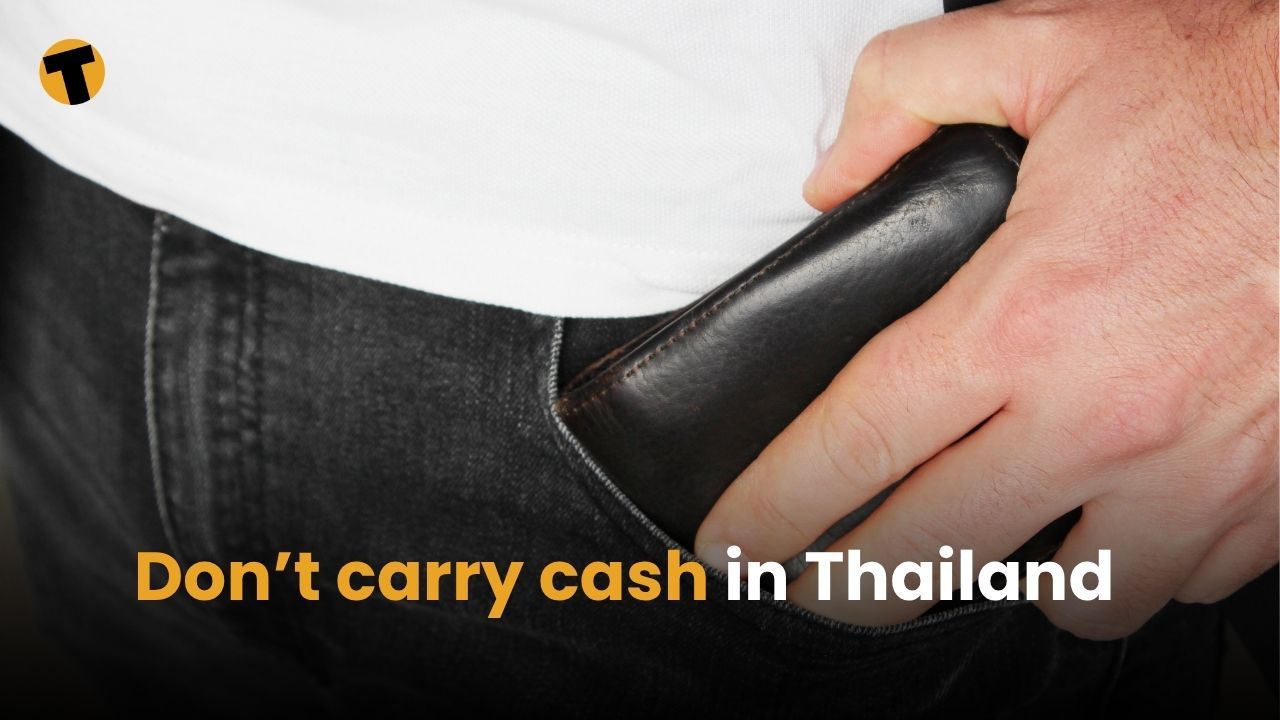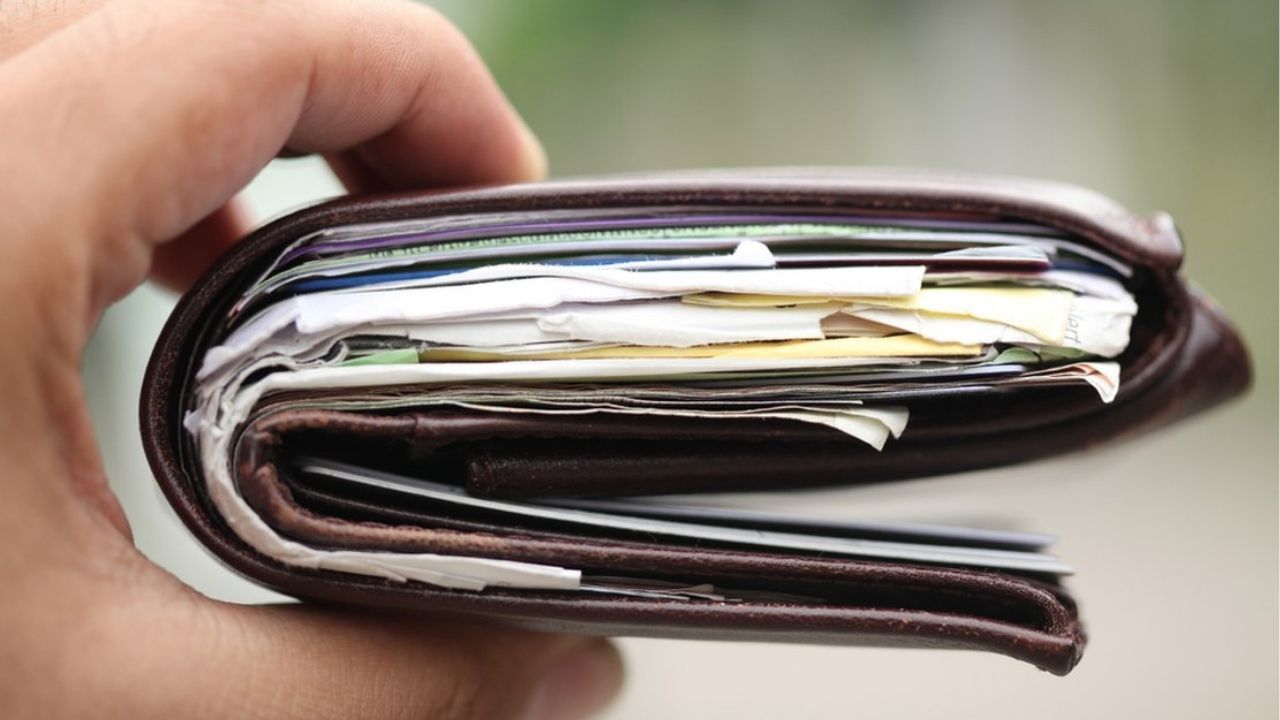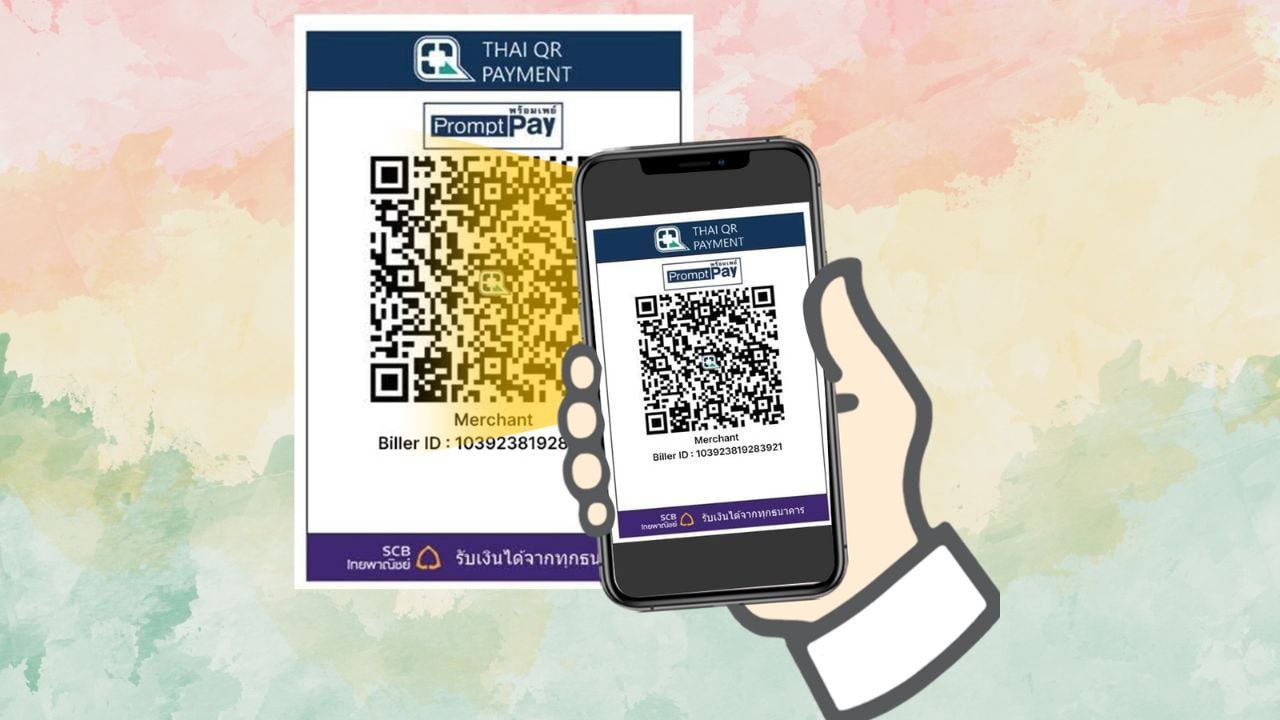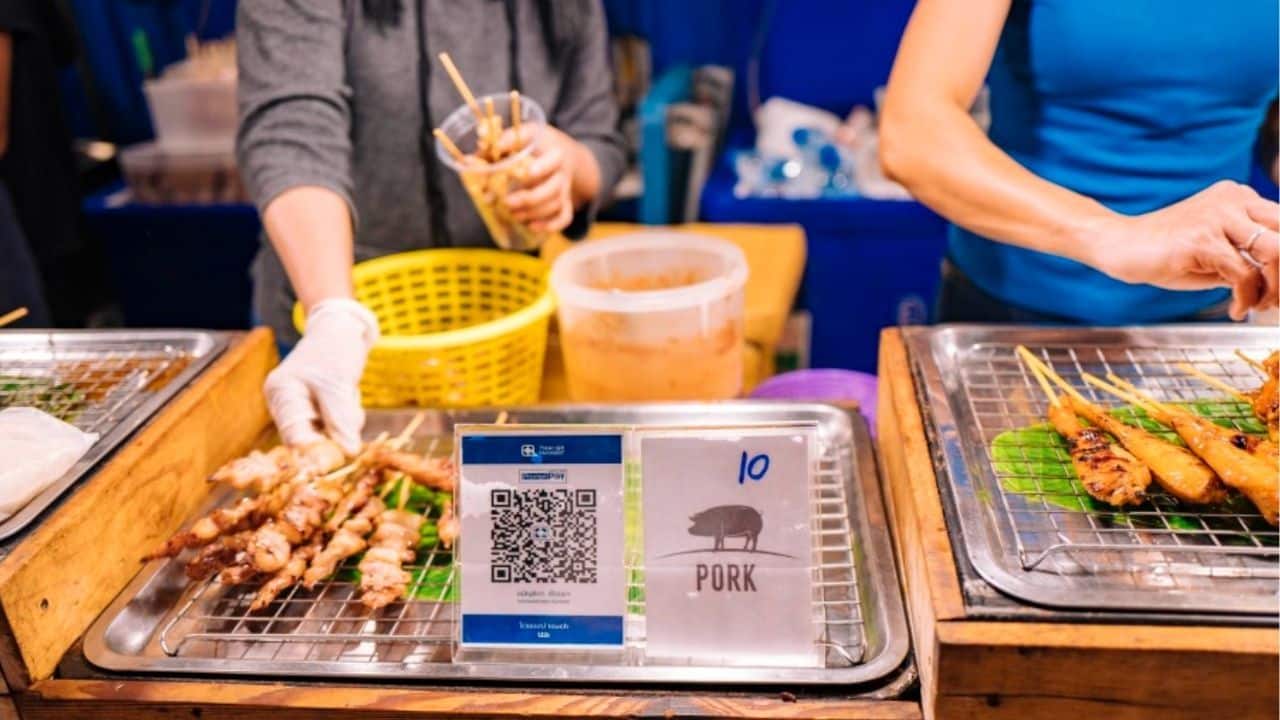Don’t carry cash in Thailand
Thailand travel money tips to go digital and avoid ATM fees

Thinking about carrying a thick wad of cash in your pocket while exploring temples, sipping coconut water by the beach, or browsing local markets in Thailand? You might want to reconsider. While Thailand remains one of the most affordable and exciting destinations in Southeast Asia, navigating its financial landscape as a visitor or new expat comes with its own set of challenges.
Digital payments are becoming more widespread, but Thailand is still a mixed bag of part cash-driven, part rapidly-modernising. And while having some baht on hand is practical, relying solely on physical money could make your trip more stressful than it needs to be.
Here’s what you need to know about carrying cash in Thailand, and why going cashless might be the smarter move.
On this page
| Section (Click to jump) | Short Summary |
|---|---|
| Why carrying cash in Thailand can backfire | Carrying large sums of cash increases your risk of theft and loss. Digital wallets and cards offer safer, more practical alternatives. |
| The modern alternatives to cash in Thailand | From TrueMoney to Rabbit LINE Pay, Thailand’s e-wallets and QR payments make spending easy, especially in cities and tourist areas. |
| When you should carry cash | Cash is still needed in rural areas, street markets, and local buses. Keep 500–1,000 baht handy for small, everyday expenses. |
| Tips for managing money smartly in Thailand | Use ATMs strategically, open a Thai bank account if possible, and compare exchange rates to avoid unnecessary fees and hassles. |
Why carrying cash in Thailand can backfire

Security risks are real
No matter how careful you are, carrying a large amount of cash always adds risk, and in Thailand, theft and loss aren’t unheard of, even if the risks are low. Whether you’re in Bangkok, Chiang Mai, or a sleepy beach town, being spotted with a bulging wallet can make you a target.
A quick scroll through Thai social media forums shows countless stories of pickpockets, bag snatchings, and hotel thefts. Losing your entire travel budget in one go is not the kind of thrill you came here for.
Digital wallets, mobile banking apps, and credit or debit cards offer better peace of mind. If your phone or card gets stolen, you can freeze it. Try doing that with stolen cash.
It’s not always convenient
Yes, cash is still widely accepted in Thailand, especially in smaller towns or markets. But digital payments are catching up fast. QR code scanners, e-wallets, and card machines are now common in urban areas, shopping centres, cafés, and even taxis.
One major convenience factor? Avoiding hassles at customs. Bringing more than 15,000 baht (about USD 400) in cash may lead to questioning or require a declaration. Travellers using digital payment systems or local ATM withdrawals dodge that entirely.
Plus, let’s be honest: exchanging money at the airport or carrying wads of baht after converting foreign currency is outdated and costly. Exchange rates fluctuate daily, and physical exchanges often come with fees or unfavourable rates.
The modern alternatives to cash in Thailand

So what are your options if you want to avoid cash as much as possible? Good news! Thailand offers a growing list of cashless tools to make your financial life smoother.
Mobile wallets are everywhere
Digital wallets like TrueMoney Wallet, Rabbit LINE Pay, and even PromptPay are becoming common payment options for both locals and foreigners. These apps let you scan to pay, top up credit, pay bills, and transfer money.
While not every mobile wallet app is foreigner-friendly in terms of setup (some may require a Thai ID or phone number), many short-term travellers are using services through international platforms linked to their bank cards.
Longer-term expats or students who register with Thai banks can enjoy full features — and avoid constantly visiting an ATM for cash.
Cards work but watch out for ATM fees
Visa and Mastercard are widely accepted in most urban locations: shopping malls, hotels, major restaurants, supermarkets, and even Grab rides. But if you’re planning to use international cards at Thai ATMs, be ready for withdrawal fees.
Most Thai ATMs charge between 220 and 250 baht per withdrawal, regardless of how much you take out. That can add up quickly if you’re withdrawing in small amounts. Some machines, like those from AEON or Citi, occasionally offer lower fees or better rates, but it’s best to plan accordingly.
Smart travellers often make fewer, larger withdrawals to save on fees or use currency exchange outlets like SuperRich or SK Exchange in cities like Bangkok and Chiang Mai, which often offer better rates than banks or airport counters.
When you should carry cash

Despite the rise of digital options, Thailand hasn’t gone fully cashless, especially outside the main cities.
You’ll still need cash for:
- Local buses and small transport in rural areas
- Street food vendors and small night markets
- Older temples that collect entry fees (Although there are temples that do use QR codes for donations)
- Local tips and donations
A good rule of thumb? Keep around 500 to 1,000 baht in your wallet for incidental expenses, and handle larger purchases digitally.
Tips for managing money smartly in Thailand
If you’re trying to stay safe and avoid unnecessary headaches while spending in Thailand, here are a few practical suggestions:
Use ATMs wisely: Make fewer, larger withdrawals to minimise flat fees. Use machines in well-lit, secure locations like shopping malls or bank branches.
Enable mobile banking: If you’re staying long-term, open a Thai bank account. Most major Thai banks now offer bilingual apps with solid digital payment features.
Check your foreign bank fees: Before your trip, ask your bank about international transaction and ATM fees. Some banks offer travel-friendly debit cards with no foreign charges.
Use exchange booths strategically: In cities, exchange counters like SuperRich often beat ATM withdrawal rates. Compare rates and fees before making large conversions.
Thailand is slowly but surely stepping into the cashless age, especially in major cities and tourist hotspots. But it hasn’t fully let go of banknotes and neither should you.
Carrying a small amount of cash is smart, even essential in some situations. But loading up your wallet with tens of thousands of baht? That’s asking for trouble, especially with modern alternatives available.
Digital wallets, mobile apps, and savvy money management will make your trip to Thailand more secure, more convenient, and a lot less stressful.
Other cashless ways you can pay in Thailand
- You can use the TrueMoney application to pay for various stores, especially 7-Eleven
- Now you can use your mobile bank prompt pay to pay for 7-Eleven as well
- You can get Rabbit cards to pay cashless for BTS transportation in Thailand
The Thaiger key summary
- Thailand is quickly going cashless, but carrying large sums of baht increases the risk of theft and inconvenience; thus, digital payments are safer and easier.
- Mobile wallets like TrueMoney Wallet and PromptPay are widely accepted, while Visa and Mastercard work in most cities (watch out for ATM withdrawal fees).
- Keep 500 to 1,000 baht on hand for small vendors or rural areas, but handle major expenses digitally for better rates and safety
ดูโพสต์นี้บน Instagram
Latest Thailand News
Follow The Thaiger on Google News:


























